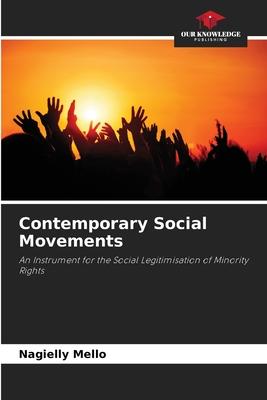The scope of this research is to analyse how contemporary social movements have contributed to enabling and recognising rights for minority groups within a multicultural and pluralist state such as Brazil. Minority groups, for the purposes of this study, are those made up of people in vulnerable circumstances, i.e. they constitute a disadvantaged group that lacks material and legal assistance. The main objective of social movements is to compel the state to make their rights viable and effective. Throughout its history, Brazil has experienced various struggles and conquests to achieve what is now known as the social and democratic rule of law. Social movements have been instrumental in building legislation that is in line with current needs and consistent with the reality of society.
| FindBook |
有 1 項符合
Contemporary Social Movements的圖書 |
 |
Contemporary Social Movements 作者:Mello 出版社:Our Knowledge Publishing 出版日期:2024-04-29 語言:英文 規格:平裝 / 64頁 / 22.86 x 15.24 x 0.38 cm / 普通級/ 初版 |
| 圖書館借閱 |
| 國家圖書館 | 全國圖書書目資訊網 | 國立公共資訊圖書館 | 電子書服務平台 | MetaCat 跨館整合查詢 |
| 臺北市立圖書館 | 新北市立圖書館 | 基隆市公共圖書館 | 桃園市立圖書館 | 新竹縣公共圖書館 |
| 苗栗縣立圖書館 | 臺中市立圖書館 | 彰化縣公共圖書館 | 南投縣文化局 | 雲林縣公共圖書館 |
| 嘉義縣圖書館 | 臺南市立圖書館 | 高雄市立圖書館 | 屏東縣公共圖書館 | 宜蘭縣公共圖書館 |
| 花蓮縣文化局 | 臺東縣文化處 |
|
|
圖書介紹 - 資料來源:博客來 評分:
圖書名稱:Contemporary Social Movements
|











